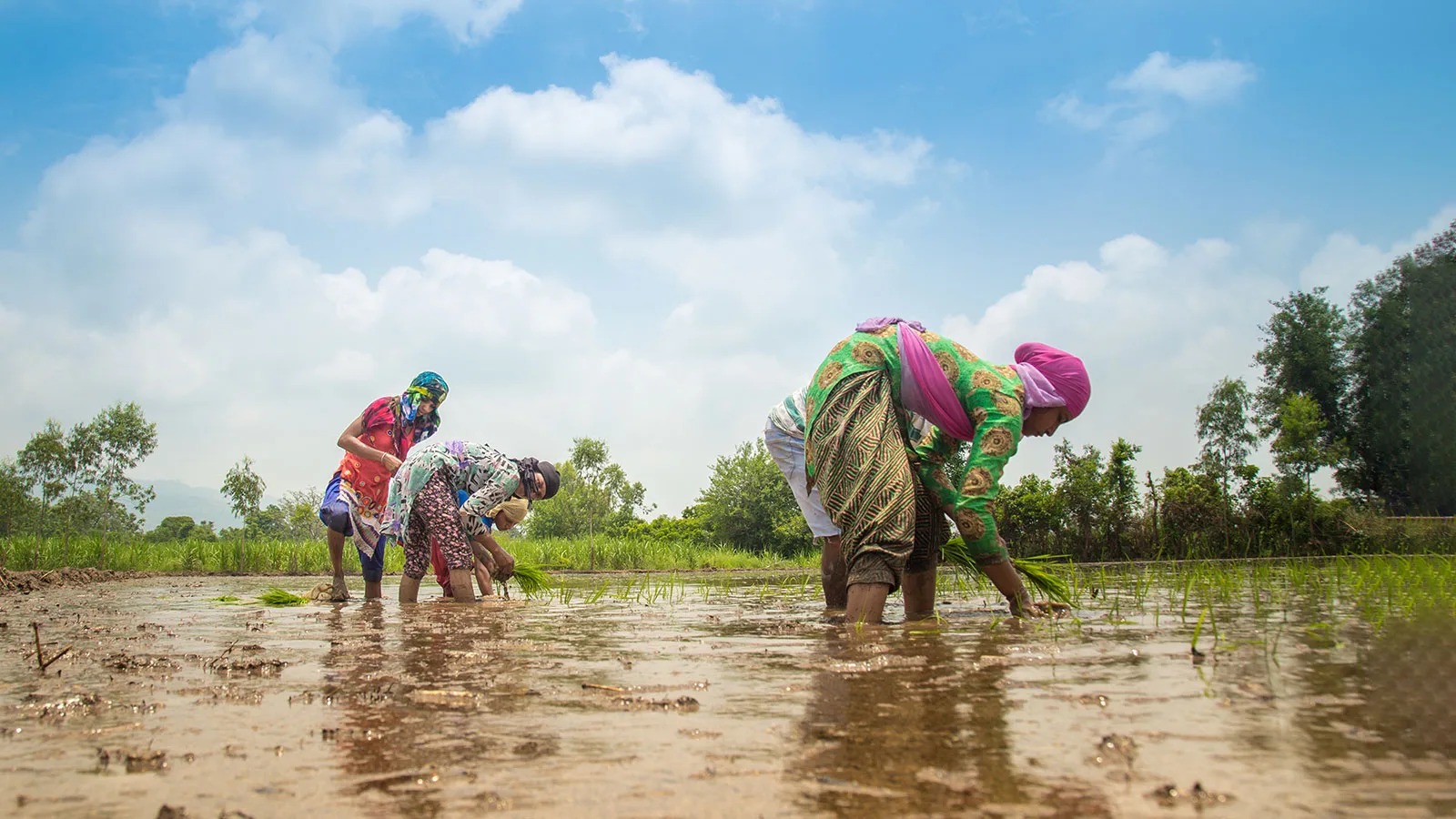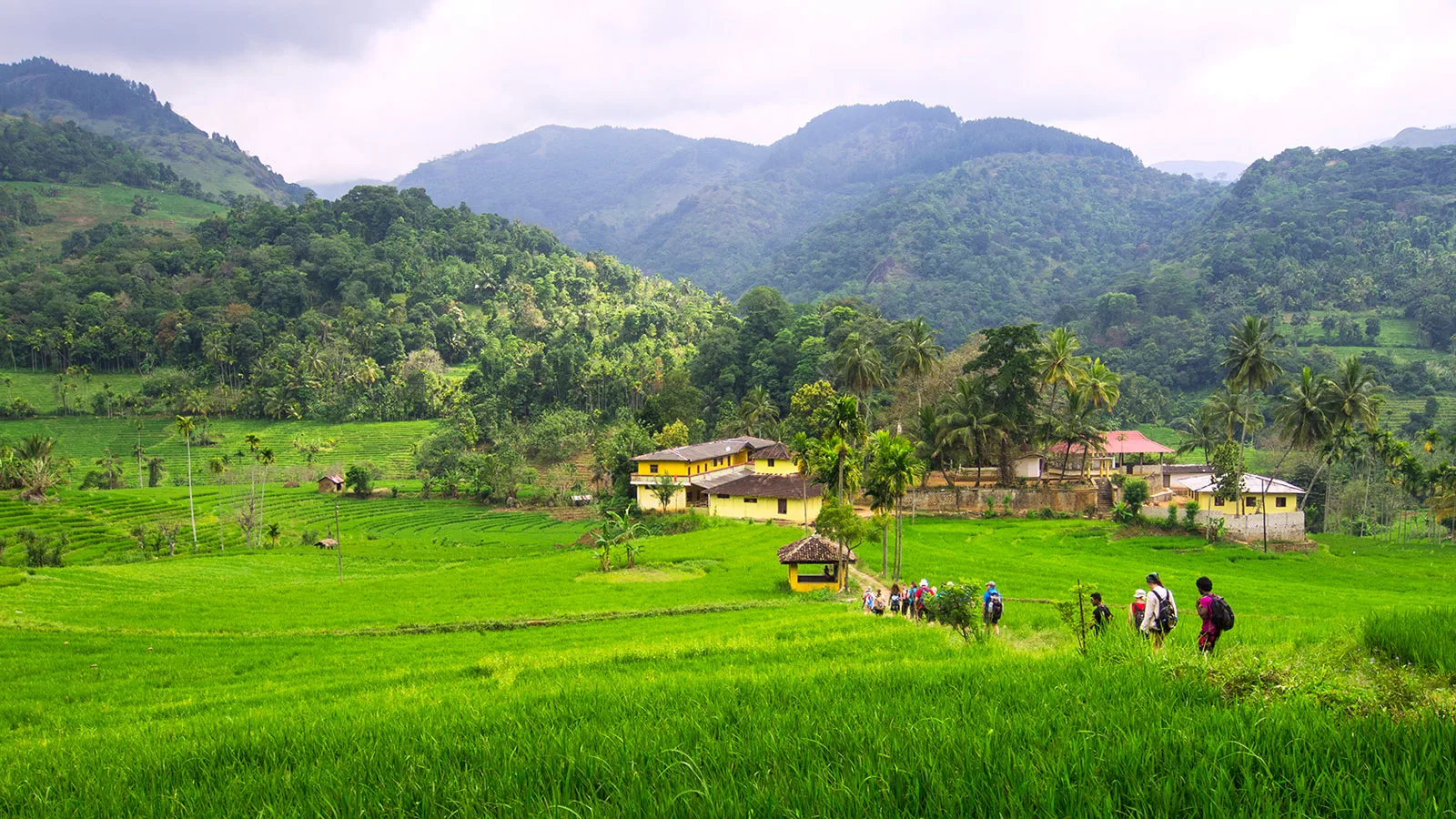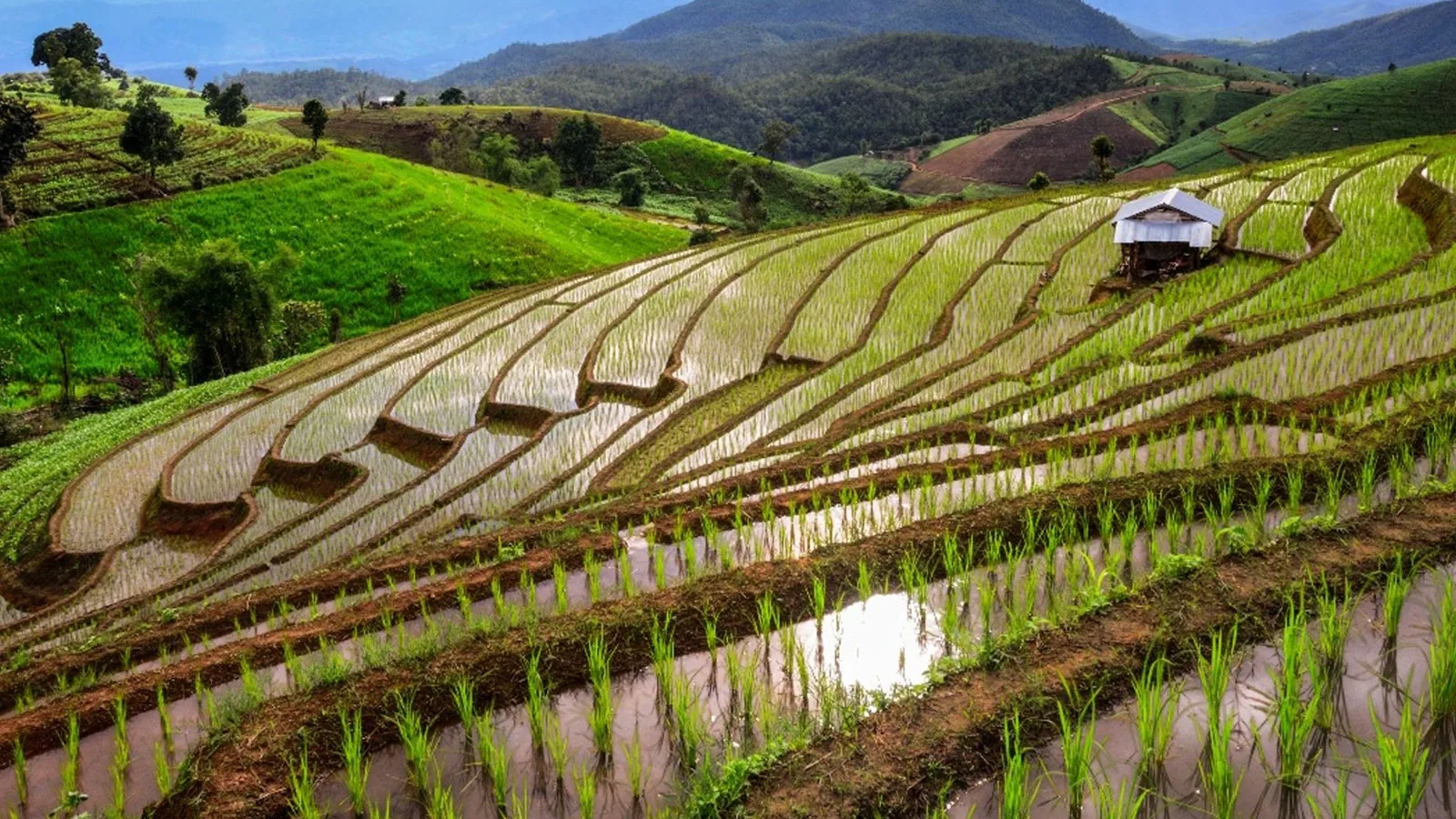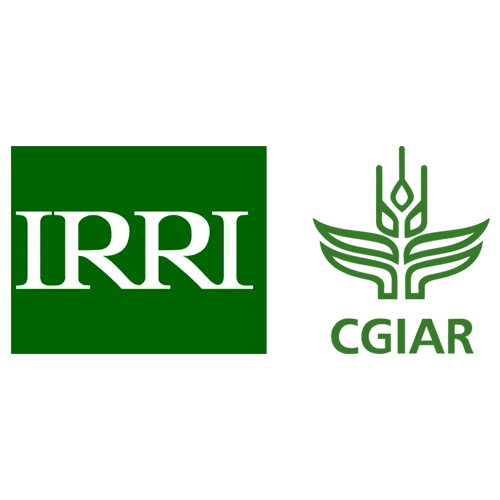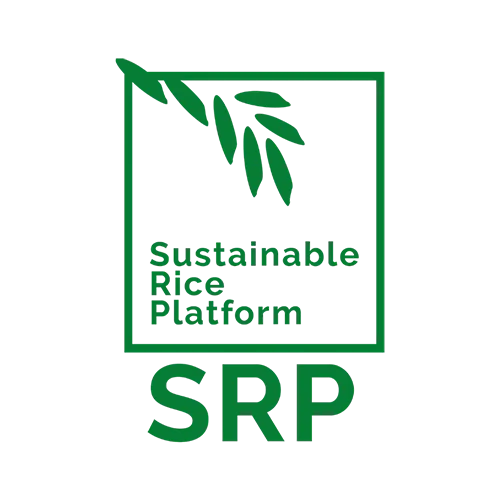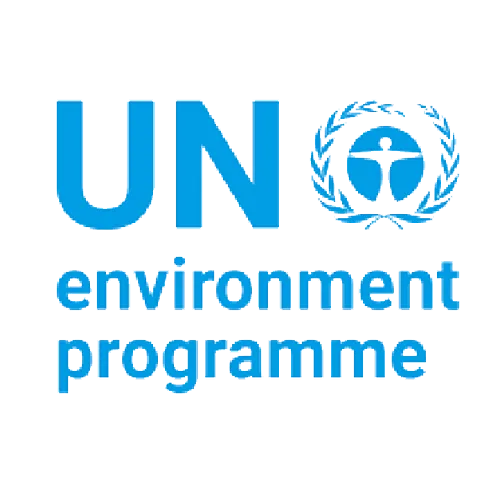Our Sustainable Rice Landscapes Initiative (SRLI) seeks to deliver smart and sustainable solutions for rice farmers and those involved in rice supply chains.
It aims to increase resource-use efficiency, reduce the environmental and climate impacts of rice production, and maximize the role of rice-growing landscapes as carbon sinks, biodiversity habitats and sources of ecosystem services. We do this by: scaling capacity for landscape-based, food system transformation projects; harnessing public-private partnerships; and integrating next-generation knowledge management.
